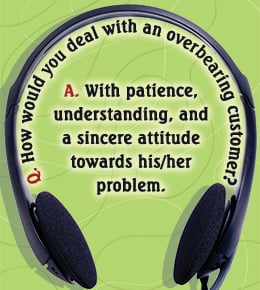Interviewing: A Project Manager’s Perspective
 The holiday season is quickly approaching and it’s time to ramp up for holiday eCommerce and customer support inquiries. On-boarding quality customer support teams is essential for success. The following are some tips for on-boarding talent:
The holiday season is quickly approaching and it’s time to ramp up for holiday eCommerce and customer support inquiries. On-boarding quality customer support teams is essential for success. The following are some tips for on-boarding talent:
1. Quality From the Start.
It’s quite clear when a person puts time and effort into their cover letter and/or resume; and doing so can speak volumes. Including industry-related goals, references to the position, and relevant experience with contacts are also key aspects. You might be surprised how often people overlook grammar or formatting. If a resume, or an internal request to join a project, includes such issues, I expect the issues will also unfortunately appear in the work as well, and therefore this person is not right for a solid customer support team.
2. Qualifications.
Having previous customer support experience is definitely key, but having a profile of experience to match the project is what defines a candidate. I also look for people who may have personal hobbies or industry interest in the project — pulling from the community.
I find that customer support staff enjoy the tasks at hand more when they enjoy the project, or have previous experience in the field. Also, having previous knowledge of industry protocol, customer support tools, or previous knowledge of the product make for smooth training.
3. Tone and Presentation.
 Tone is something that I pay attention to as well. The way in which a person interprets and responses to my questions, even in the interview process, helps illustrate how he or she may respond to a customer or client.
Tone is something that I pay attention to as well. The way in which a person interprets and responses to my questions, even in the interview process, helps illustrate how he or she may respond to a customer or client.
- Having a positive, upbeat tone during the interview means that the applicant is able to maintain a positive experience while talking to customers or clients.
- Minimal downtime between my questions and the CS rep’s response denotes comfortable and confidence (being able to think on one’s feet is a great trait to have!).
- Being conversational and interactive can show that the applicant is engaged in the interview and genuinely interested in position.
4. Knowing When To Pause The Conversation.
During the interview process, I like to ask a range of hypothetical operational questions to test the knowledge and troubleshooting ability of the candidate. Knowing how to admit defeat – when a rep needs to escalate or pause for reflection – is not a sign of weakness, per se. In fact, it’s a great example of a rep who wants to provide the best answer, and not just the pacifying answer. It’s a tricky line to walk that only the talented customer support team members know how to achieve.
Just like each project I hire for is unique, each interview candidate is as well. The best advice for staff looking to join a great project is to be confident, know the position at hand, and make treat me like you would a potential customer. Chances are, you’ll like the outcome!
SUBSCRIBE TO OUR BLOG
Get a weekly roundup from the world of ModSquad.
SUBSCRIBE TO OUR BLOG
Get a weekly roundup from the world of ModSquad.